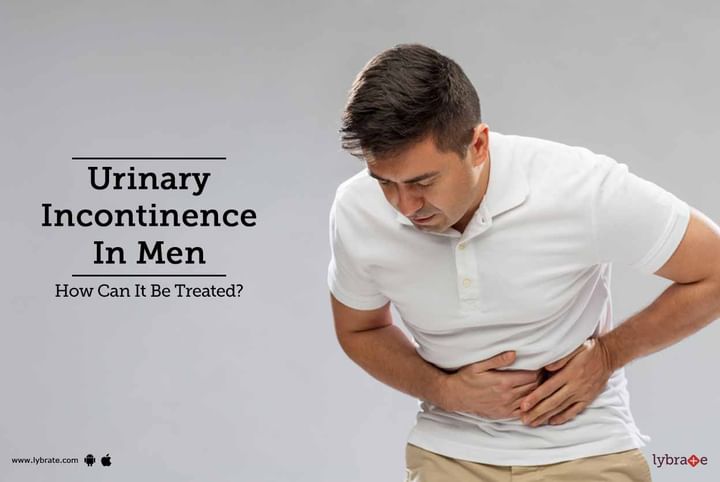Urinary Incontinence In Men - How Can It Be Treated?
Urinary incontinence is the unintentional passing of urine. It's a common problem thought to affect millions of people. There are several types of urinary incontinence, including:
- Stress Incontinence– when urine leaks out at times when your bladder is under pressure; for example, when you cough or laugh.
- Urge Incontinence– when urine leaks as you feel a sudden, intense urge to pass urine, or soon afterwards.
- Overflow Incontinence (chronic urinary retention)– when you're unable to fully empty your bladder, which causes frequent leaking.
- Total Incontinence– when your bladder can't store any urine at all, which causes you to pass urine constantly or have frequent leaking.
It's also possible to have a mixture of both stress and urge urinary incontinence.
What causes urinary incontinence in men?
Urinary incontinence in men results when the brain does not properly signal the bladder, the sphincters do not squeeze strongly enough, or both. The bladder muscle may contract too much or not enough because of a problem with the muscle itself or the nerves controlling the bladder muscle. Damage to the sphincter muscles themselves or the nerves controlling these muscles can result in poor sphincter function. These problems can range from simple to complex.
A man may have factors that increase his chances of developing UI, including
- birth defects—problems with development of the urinary tract
- a history of prostate cancer—surgery or radiation treatment for prostate cancer can lead to temporary or permanent UI in men
UI is not a disease. Instead, it can be a symptom of certain conditions or the result of particular events during a man’s life. Conditions or events that may increase a man’s chance of developing UI include
- benign prostatic hyperplasia (BPH)—a condition in which the prostate is enlarged yet not cancerous. In men with BPH, the enlarged prostate presses against and pinches the urethra. The bladder wall becomes thicker. Eventually, the bladder may weaken and lose the ability to empty, leaving some urine in the bladder. The narrowing of the urethra and incomplete emptying of the bladder can lead to UI.
- chronic coughing—long-lasting coughing increases pressure on the bladder and pelvic floor muscles.
- neurological problems—men with diseases or conditions that affect the brain and spine may have trouble controlling urination.
- physical inactivity—decreased activity can increase a man’s weight and contribute to muscle weakness.
- obesity—extra weight can put pressure on the bladder, causing a need to urinate before the bladder is full.
- older age—bladder muscles can weaken over time, leading to a decrease in the bladder’s capacity to store urine.
Treating Urinary Incontinence
Initially, your GP may suggest some simple measures to see if they help improve your symptoms. These may include:
- lifestyle changes – such as losing weight and cutting down on caffeine and alcohol
- pelvic floor exercises – exercising your pelvic floor muscles by squeezing them, taught by a specialist
- bladder training – where you learn ways to wait longer between needing to urinate and passing urine, guided by a specialist
- You may also benefit from the use of incontinence products, such as absorbent pads and handheld urinals.
- Medication may be recommended if you're still unable to manage your symptoms.
- Surgery may also be considered. The specific procedures suitable for you will depend on the type of incontinence you have.
- Surgical treatments for stress incontinence, such as tape or sling procedures, are used to reduce pressure on the bladder or strengthen the muscles that control urination.
- Operations to treat urge incontinence include enlarging the bladder or implanting a device that stimulates the nerve that controls the detrusor muscles.
In case you have a concern or query you can always consult an expert & get answers to your questions!



+1.svg)
